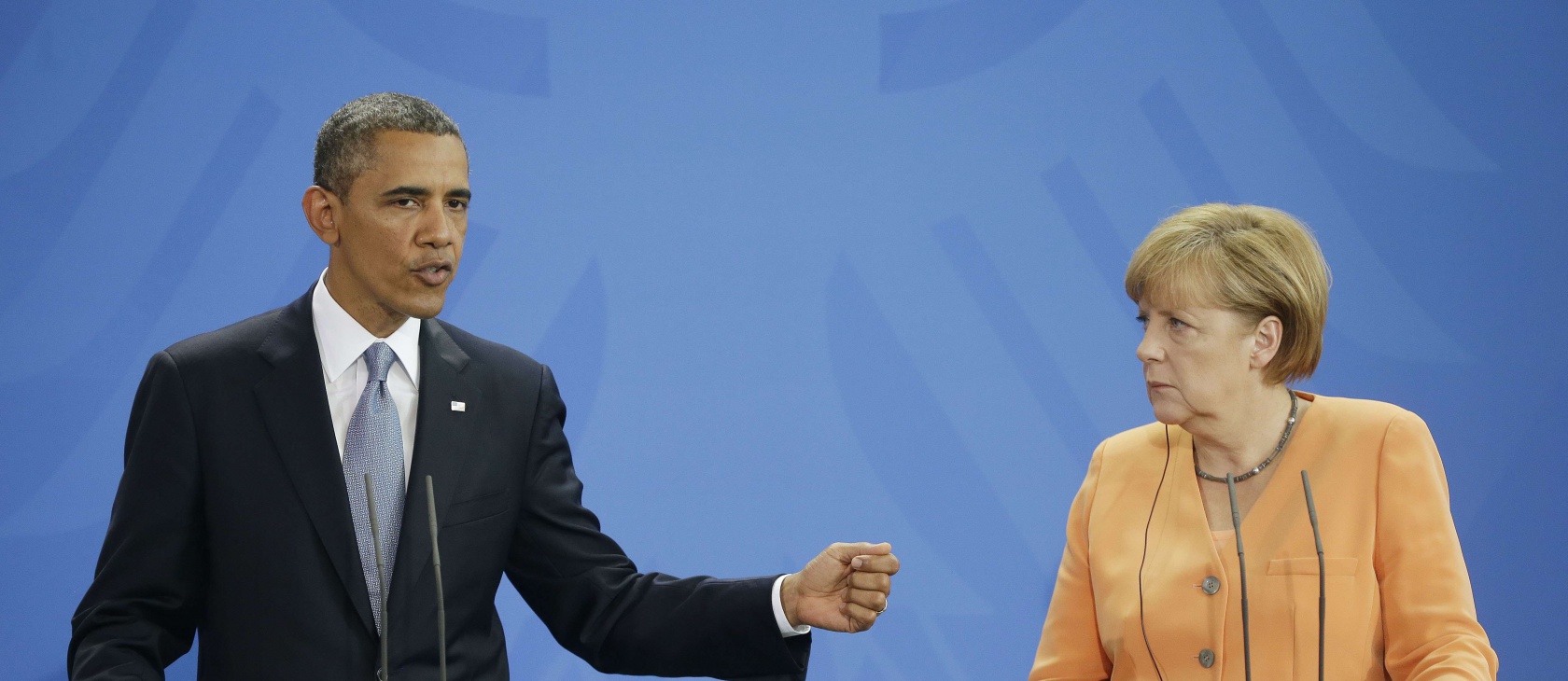President Barack Obama and German Chancellor Angela Merkel held their last joint press conference as heads of state on Thursday, pressing national leaders – in President Obama’s words – “not to take for granted the importance of the transatlantic alliance.” And they grounded that longstanding partnership on their conception of the bedrock principles that they believe unite North America and the EU.
“The commitment of the United States to Europe is enduring and it’s rooted in the values we share,” Obama said, “our commitment to democracy, our commitment to the rule or law, our commitment to the dignity of all people, in our own countries and around the world.” Merkel agreed that the transatlantic alliance is “based on our shared values.” The tone and content of their press conference echoed Merkel’s statement following Donald Trump’s election as president, as well as their joint New York Times op-ed, also published Thursday, in which Obama and Merkel call on transatlantic nations to “seize the opportunity to shape globalization based on our values and our ideas.”
The commitment of the United States to Europe is enduring and it’s rooted in the values we share.
The notion of shared U.S.-European values has undergone a resurgence since America’s presidential election. French socialist president François Hollande urged President-elect Trump to “respect” such “principles” as “democracy, freedoms, and the respect of every individual.” Other EU leaders have made similar statements.
Applying these values to concrete situations, Chancellor Merkel called for additional measures aimed at “climate protection,” as well as expanded international “development cooperation.”
“It’s important that these disparities in living conditions cannot be allowed, in this digital period, to be too marked,” she said. For his part, President Obama proposed additional “investment” in alternative energy and vigilance that Iran abides by the nuclear agreement he brokered.
Yet both the press conference and the missives from international leaders like Hollande are notable for the values they do not enumerate:
- Religious liberty, including the freedom to live according to one’s conscience within transatlantic states;
- Economic dynamism that allows people to rise to the full extent of their God-given abilities;
- Upholding the Judeo-Christian values that sustained and shaped transatlantic cultures for millennia; and
- Encouraging strong churches, social organizations, and civil society institutions to meet national needs organically, from the bottom-up.
Nor did they mention the shared challenges facing the United States, Canada, and the EU:
- Lumbering welfare state economies that sap the vitality of their most creative elements;
- Demographic implosion that threatens future productivity and state pensions’ solvency;
- Secularization, which undermines both our historically shared values and the concept of morality itself;
- Mounting indebtedness and rising debt-to-GDP ratios that slow current economic growth and imperil future generations’ opportunities;
- Large and growing segments of society that share none of the historic values treasured by the West, religious or secular; and
- The strife between local self-determination and overreaching national or supranational governments.
Yet omitting these concerns undeniably impoverishes the intellectual and political discussion.
Beginning in 2017, the Acton Institute’s Religion & Liberty will address these issues as they relate to the transatlantic arena. This new addition to the familiar R&L publication will feature news, commentary, and analysis from the United States, Canada, and the EU. We will seek to enunciate the values that politicians leave out of public discourse, to highlight the gaps between politically toxic rhetoric and historically verified principles of freedom and virtue, and – where possible – to be repairers of the breach between our current socio-political morass and the heights to which we could ascend by standing upon the firm foundation of Western values.
Watch for additional details in the days and weeks ahead.




